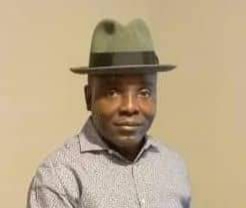Nigeria’s Supreme Court restores hope, commands global respect
|
Getting your Trinity Audio player ready...
|
By Justice Osai Ahiakwo
Amidst the relief brought by the recent judgements delivered by the Supreme Court in Nigeria, an indepth understanding of the nitty-gritty of the law in restoring the judicial integrity in election matters vis-a-vis the electoral mandate of some serving governors whose quest for the proper interpretations of the electorial laws regulating the conducting of elections was sought, is most desirable.
Prior to the 2023 general elections there was a revolutionary steps taken by the then President Buhari led administration to reform the Electorial Act. The right of Appeal to the Supreme Court was limited to just the Presidential and Governorship elections paving way for all aggrieved parties including the electoral body (INEC) to approach the Supreme Court to lodge appeals against the decisions of the Tribunal and Court of appeal.
The Supreme Court is indeed a crucial pillar of the justice system in our dear nation -Nigeria. Truly, what the Supreme Court of Nigeria has done reflects its constitutional duty as a final arbiter of justice in determining disputes brought before the Learned Justices.
It is the duty of the Supreme Court to uphold the rule of law and protect individual rights and of which portends great significance as evidently shown by the recent judgements delivered for posterity to reckon with.
The Supreme Court being not just the highest court of the land but a policy court, deservedly has attracted respect amongst the global community by righting the wrongs made by the tribunals and the appellate court.
Succintly,I dare to say that injustice in election matters is a serious issue in Nigeria. The manipulation of electoral processes, voter suppression, rigging, violence and other forms of unfair practices have given rise to the issue of integrity; undermining the democratic system which leads to a lack of trust in the international community.
The government, Independant Electoral Commission, INEC, civil society and the electorate must work together to address these issues and ensure that elections are free, fair, and transparent without neccessarily resorting to litigations.
Undoubtedly, the electoral system needs a honest implementation of the reforms introduced in the Electorial Act to strengthen the processes of electing people into positions of trust. This will definitely enhance the independence of INEC, having as part of its responsibilities to promote voter education and participation.
Conscious efforts must be put in place to hold those responsible for the miscarriage of justice in election matters, whether the judges, electorial umpires, security operatives or even the politicians themselves.
The National Judicial Council (NJC) should as a matter of priority hold the members of the penal at both the Tribunal and Court of Appeal accountable for professional misconduct and ineptitude.
Where there is obvious dereliction of duty, appropriate sanctions should as well be handed down on erring Judicial Officers for the purpose of maintaining its reputation.
The Supreme Court certainly has discharged the vital role in restoring hope by upholding the rule of law and ensuring justice in all the matters thus far.
Through the decision in the Plateau State Governorship election involving Governor Caleb Mutfwang, My Noble Lords have exercised the power of addressing pre-electons issues querying why the lower courts should nullify the election based on internal party affairs. This is a serious indictment on the Court of Appeal Justices involved in the Mutfwang’s case.
The notoriety of the judicial precedence was not only reiterated, the Supreme Court emphasized that it must be obeyed and followed by the lower courts as it will affect the lives of citizens and shape the direction of the country.
It is important therefore to state that the restoration of hope is a multifaceted endeavor that involves not just the courts applying the law the way it is and not how it ought to be, but the involvement of the entire people which will pave the way for the electorial system to undergo periodic reviews aimed at improving on the laws according to our peculiarity as a nation and as a people.



Comments are closed, but trackbacks and pingbacks are open.